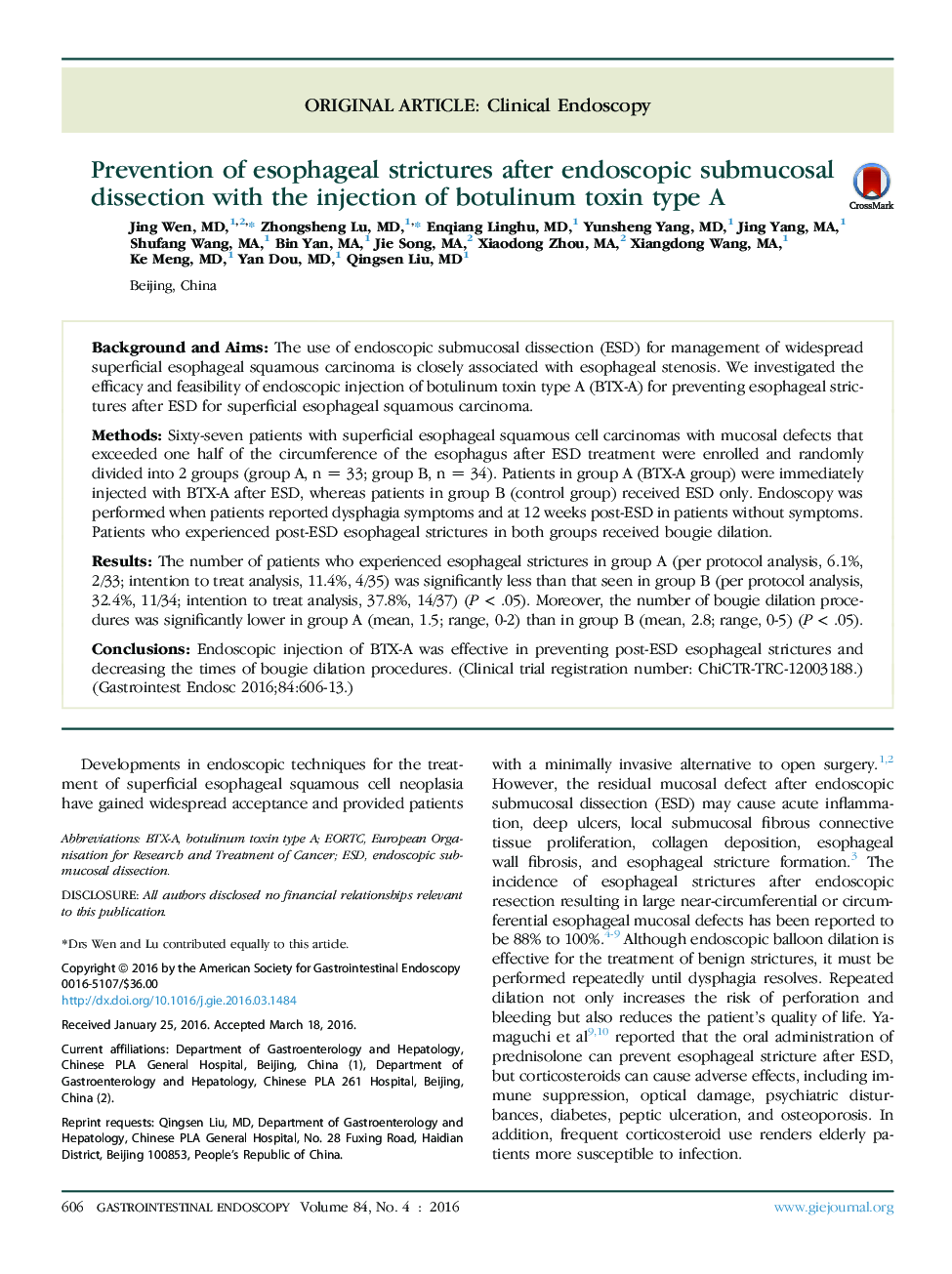| Article ID | Journal | Published Year | Pages | File Type |
|---|---|---|---|---|
| 5659808 | Gastrointestinal Endoscopy | 2016 | 8 Pages |
Background and AimsThe use of endoscopic submucosal dissection (ESD) for management of widespread superficial esophageal squamous carcinoma is closely associated with esophageal stenosis. We investigated the efficacy and feasibility of endoscopic injection of botulinum toxin type A (BTX-A) for preventing esophageal strictures after ESD for superficial esophageal squamous carcinoma.MethodsSixty-seven patients with superficial esophageal squamous cell carcinomas with mucosal defects that exceeded one half of the circumference of the esophagus after ESD treatment were enrolled and randomly divided into 2 groups (group A, n = 33; group B, n = 34). Patients in group A (BTX-A group) were immediately injected with BTX-A after ESD, whereas patients in group B (control group) received ESD only. Endoscopy was performed when patients reported dysphagia symptoms and at 12 weeks post-ESD in patients without symptoms. Patients who experienced post-ESD esophageal strictures in both groups received bougie dilation.ResultsThe number of patients who experienced esophageal strictures in group A (per protocol analysis, 6.1%, 2/33; intention to treat analysis, 11.4%, 4/35) was significantly less than that seen in group B (per protocol analysis, 32.4%, 11/34; intention to treat analysis, 37.8%, 14/37) (P < .05). Moreover, the number of bougie dilation procedures was significantly lower in group A (mean, 1.5; range, 0-2) than in group B (mean, 2.8; range, 0-5) (P < .05).ConclusionsEndoscopic injection of BTX-A was effective in preventing post-ESD esophageal strictures and decreasing the times of bougie dilation procedures. (Clinical trial registration number: ChiCTR-TRC-12003188.)
